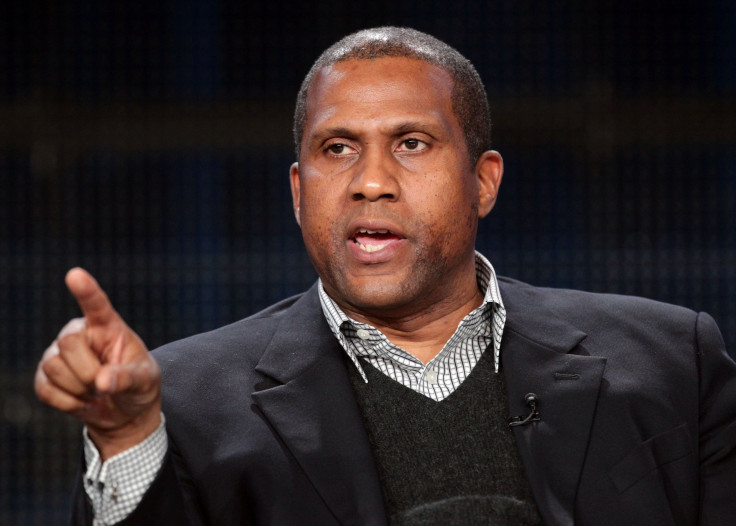Tavis Smiley On Office Romances: 'Where Else Are You Going To Meet People?'

The year 2017 saw the skeleton of sexual misconduct come tumbling out of the closet, ensnaring many in Hollywood, politics and media.
One such accused is longtime PBS host Tavis Smiley, who was suspended by the network over allegations of sexual misconduct pending an inquiry.
Smiley denied the allegations, but admitted to engaging in consensual workplace relationships, saying his workplace did not "forbid" or "encourage interoffice relationships," the Hill reported.
"Let's face it, nobody is working 40 hour weeks anymore, we are working 40-, 50-, 70-, 80-hour weeks. Where else are you going to meet people in this business?" Smiley said Monday on Fox News's "Tucker Carlson Tonight."
Given the surge in sexual misconduct allegations across the professional spectrum, the minefield that coworkers and companies navigate when it comes to love at work has gotten even more complex.
Indian writer Manu Joseph writing about the issue in his column for publication HT Mint quoted an HR director as saying, “All affairs, by their very nature, begin in inappropriate ways, and that advances are inappropriate only when they fail. A successful misconduct is called office romance.”
Let’s take a look at how prevalent and successful are instances of co-workers dating, and how attitude to it has changed in a changed atmosphere, which can lead to a “witch hunt” situation where, in the words of Woody Allen, “every guy in an office who winks at a woman is suddenly having to call a lawyer to defend himself.”
According to a survey by the Society for Human Resource Management, one out of four — 24 percent —employees reported they have been or are currently involved in a workplace romance.
Studies showed office romances can increase job satisfaction, motivation and morale overall, University of Alabama law professor Daiquiri Steele said, NPR reported.
"Office romances have also been found to lead to increased creativity — to add more dynamic energy to the workplace," Steele said.
However, when they go wrong it can lead to decreased productivity, morale — and charges of sexual harassment.
So what have offices done to deal with the situation?
While some employers ignore or ban office romances, others discourage romance between supervisors, and the workers who report to them.
Increasingly organizations are implementing a written or verbal policy on workplace romance — 42 percent in 2013 versus 25 percent in 2005, according to the most recent data available from the society.
Most rules outlaw relationships between bosses and subordinates or push for "love contracts," where employees are required to disclose their consensual relationships.
"From an employer standpoint, I think they're probably taking it too far, but I understand that from a risk-management issue, they want to mitigate conflict as much as possible," said Joshua Lybolt, founder of Lifstyl Real Estate in Crown Point, Indiana, CBS News reported.
However, Smiley opined companies taking things too far can "lead to public humiliation and personal destruction."
Taking to Facebook after PBS announced his suspension last week, Smiley wrote: "If having a consensual relationship with a colleague years ago is the stuff that leads to this kind of public humiliation and personal destruction, heaven help us," he said. "This has gone too far. And, I, for one, intend to fight back."
© Copyright IBTimes 2024. All rights reserved.





















